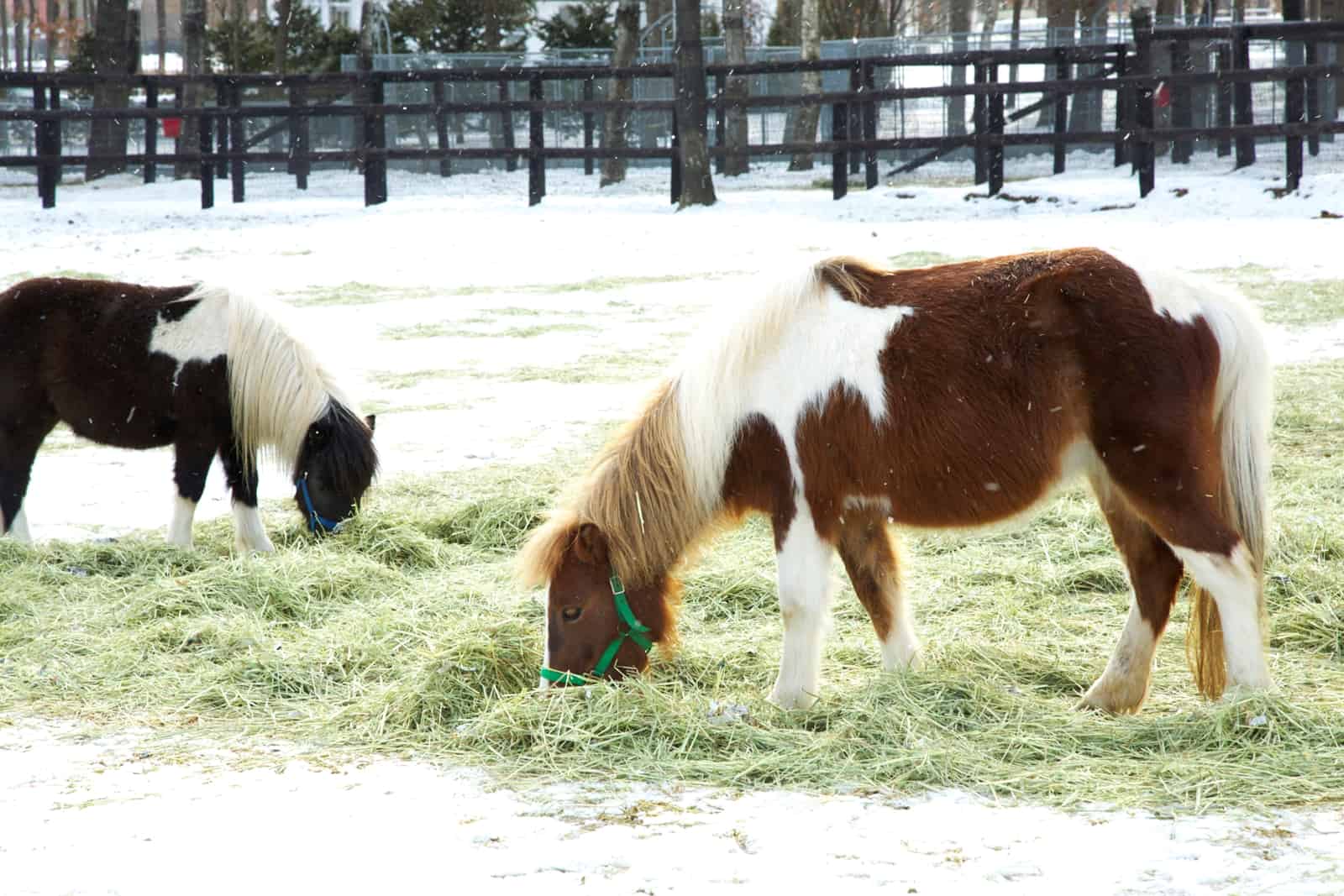Study: Hay Helps Shetland Ponies Adapt to Winter Conditions
- Topics: Article, Body Condition, Hay, Horse Care, Nutrition, Ponies, Welfare and Industry, Winter Care

Study ponies that didn’t receive supplemental feed during the winter adapted to the food supply available, but blood parameters suggested the beginning of health problems when the available fodder was insufficient, said Lea Brinkmann, PhD, of the University of Göttingen Department of Animal Sciences, in Germany.
In their study, Brinkmann and her fellow researchers followed 10 Shetland pony mares over a full year, from June to June, in Göttingen. During spring, summer, and part of autumn, the ponies lived at pasture. But from November to March, the researchers housed them in paddocks with a shelter. Half the ponies received food equivalent to 100% of their daily nutritional requirements. The other half gradually received less and less food—to mimic the kinds of nutritional changes that would happen in “natural” winter conditions—until they had only 60% of their daily nutritional requirements.
They found that all the ponies gained considerable weight at pasture in spring and summer, reaching higher-than-optimal body condition scores, Brinkmann said. However, the autumn pasture provided fewer nutrients, and the mares began to lose weight and body condition closer to a normal range during that period. Once they entered the paddocks and began the experimental feeding stage, the ponies fed 100% of requirements maintained constant body weight and condition. But those in the 60% group lost 12.8% of their body weight and dropped in body condition score from fat/very fat to moderate/good over the 16-week experimental period
Create a free account with TheHorse.com to view this content.
TheHorse.com is home to thousands of free articles about horse health care. In order to access some of our exclusive free content, you must be signed into TheHorse.com.
Start your free account today!
Already have an account?
and continue reading.

Written by:
Christa Lesté-Lasserre, MA
Related Articles
Stay on top of the most recent Horse Health news with















